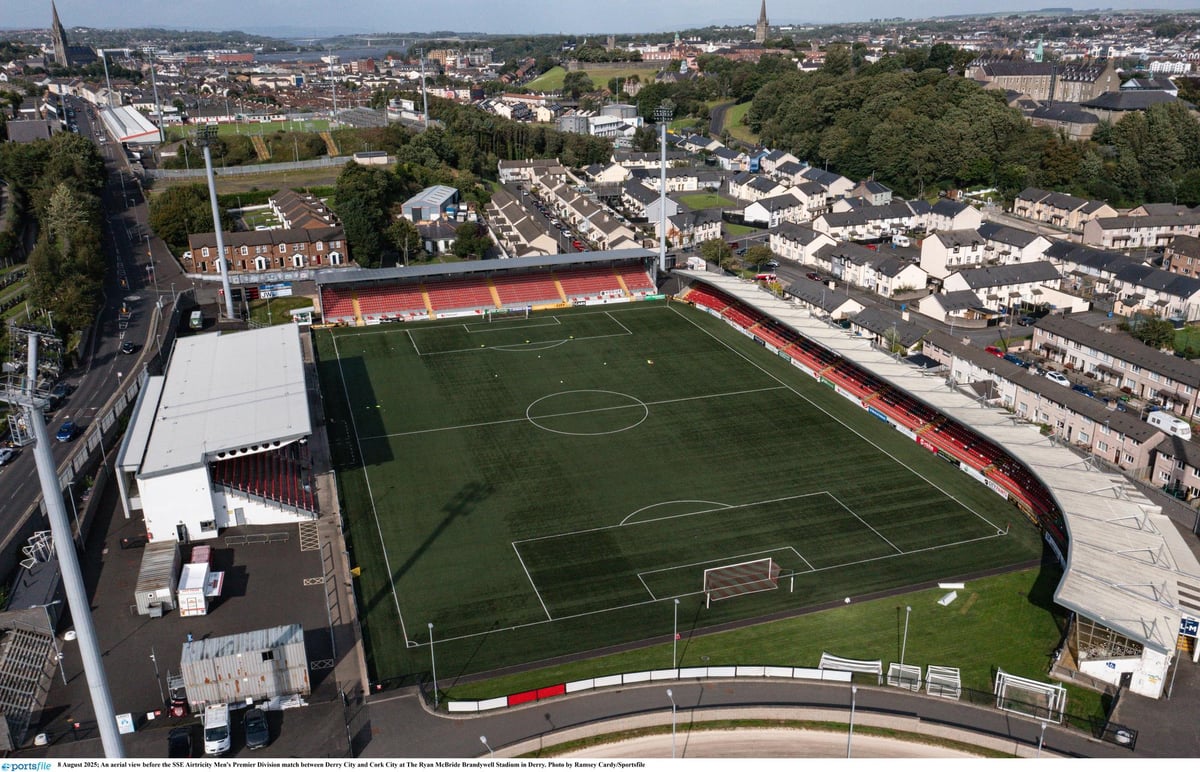NI Football Fund officials refute suggestions scoring matrix was manipulated or discriminatory
By Simon Collins
Copyright derryjournal

There was widespread anger across the North West last week when Sports Minister Gordon Lyons announced the 20 successful clubs who would move onto the next phase of the process. Derry City and Institute were amongst the 17 denied a share of the £36.2m pot which was ringfenced to improve stadia and facilities in 2017. NIFL clubs ‘Stute and Ards had hoped funding would have helped towards the construction of their respective new homes but failed to progress. The leading Civil Servants tasked with delivering the scheme by Minister Lyons defended the selection process during an appearance at a Department for Communities [DfC] committee meeting at Stormont on Thursday morning. The DfC Committee members expressed several concerns about the scoring system utilised, whether or not clubs without a ground were disadvantaged and asked why regional balance wasn’t considered. However, they were told by DfC officials that ‘no goalposts were moved’ during the process and that there ‘is no evidence to suggest’ criticisms of the scoring matrix or construct of the applications are valid. Ms Gray was joined by the Senior Responsible Officer [SRO] for The NI Football Funding [TNIFF] Emer Morelli and the Head of TNIFF performance programme, Claire Tobin who claimed the matrices and guidance for the applications were ‘robust, fully transparent and fair to all’. The committee were told by Morelli that FIVE of the 38 applicants failed to provide “sufficient detail in their application to achieve the minimum score required to be ranked and therefore were not eligible to proceed.” She continued: “I can give my assurance as SRO that the scheme was published in a fully transparent way and agreed matrices and agreed scoring was completed. The minister had no role in that assessment of those applications to reach those scores. “The outcome is the outcome. There was no further manipulation or anything of that nature following that transparent process.” SDLP Communities Spokesperson Mark H Durkan MLA has called for a VAR-like review of the funding decision and queried the application process which he felt ‘seems discriminatory against those clubs with no ground’. “It basically meant they weren’t permitted, never mind required, to answer the safety capacity and modernisation questions or elements under benefits which effectively means they were disqualified from 40 of the points available to others.” That suggestion was knocked back by Ms. Gray: “We structured the application form in such a way that clubs that didn’t have a ground would be eligible to apply and that they would actually have opportunities to score on slightly different criteria. “So there was a section A and B that separated clubs that had an existing ground from those that didn’t. “It’s important to point out that this was developed with stakeholders including the clubs themselves and they told us this is what they wanted to be tested on. Not just the physical need for their facilities but also the impact they made in their communities. “Even clubs without a physical ground or who were sharing a ground with another club were still delivering lots of impactful benefits in the communities. So their current benefits were available to be scored. And then they talked about their future benefits that would be able to be delivered. “So the points that would be available to a club without a ground were equal to the points available to a club with a ground. Clubs wanted to compete on an even playing field. “This process does not deviate from normal processes of scoring and moderating grant applications,” she continued. “And in advance of the publication of the documentation, the process was thoroughly scrutinized internally with all of our business partners. “It was scrutinized by our legal advisors in the departmental solicitors office, and the overarching approach was thoroughly tested with stakeholders. “After the application process closed we followed the process to the letter in terms of what has been published on the website. “Nothing was changed. No goalposts were moved. No weightings were applied. The Minister did not change his mind after he made decisions and I think those are some of the criticisms that have been levelled at us and there is no evidence to suggest anywhere that those criticisms are valid.” Mr Durkan also claimed certain clubs who were excluded from the process were considering taking legal action. “It’s my understanding that a number [of clubs] are actually currently considering legal action as well or challenge to this decision,” he said. Mr Durkan had previously asked the Sports Minister why Derry City was excluded from the funding despite ‘scoring fourth’ out of 37 applicant clubs. “It is a decision that ensured the exclusion of Derry City, which scored fourth highest overall and has a shovel-ready project. Other clubs scoring much lower and nowhere near ready have been funded.” Minister Lyons rejected Mr. Durkan’s claim, stating it was not possible to compare the scores of clubs across the three tiers of the scheme. Meanwhile, Ms. Morelli concluded her appearance at Thursday’s committee meeting by insisting ‘transparency’ was at the core of the entire process. “We understand that clubs are disappointed because we’ve been working with them and we know there are some really good projects out there and there is a need across the board. “But fairness and transparency have been at the core of everything that we have done. “I think some of the criticism that has been labelled, particularly in social media, has been very much assumed that there was some manipulation or change that happened after the application process closed. I can assure you that is absolutely not the case.”



